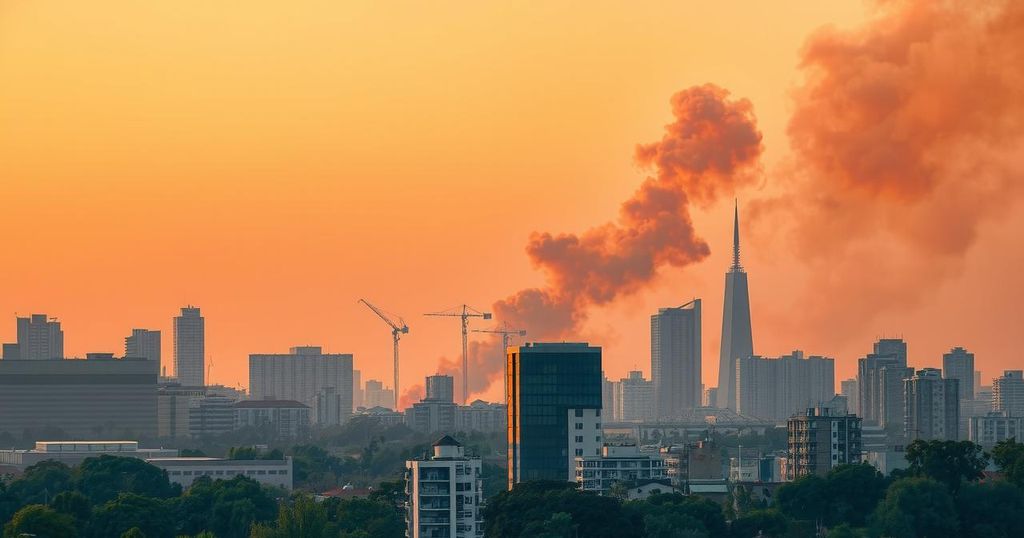A study indicates that climate change may significantly increase urban fire risks globally. If global temperatures exceed 4 degrees Celsius, approximately 300,000 fire-related deaths could occur worldwide by 2100. The study forecasts considerable increases in both outdoor and vehicle fires while suggesting half of the potential impacts might be mitigated by limiting temperature rises to below 1.5 degrees Celsius.
A recent study published in the journal Nature Cities highlights that climate change is expected to significantly increase the risk of urban fires globally. An analysis of fire incidents and temperature data from over 2,800 cities across 20 nations, representing more than 20% of the global populace, reveals that if global warming exceeds 4 degrees Celsius, fire-related fatalities could reach approximately 300,000 by 2100, with injuries surpassing one million. Conversely, adhering to a limit of 1.5 degrees Celsius could potentially cut these figures in half.
The study forecasts a 22.2% rise in outdoor fires and an 11.6% increase in vehicle fires by 2100 under high-emission scenarios, even as building fires are projected to decline by 4.6%. Specifically, for every 1°C increase in temperature, vehicle fires could rise by 3.3%, with outdoor fires increasing by 6.9%. The examination further details the relationship between climate change and various types of urban fires, including those involving vehicles, buildings, and outdoor areas such as landfills.
Particularly striking is the projection for New Zealand, where city fires may escalate by 40% by 2100 under unmitigated warming conditions exceeding 4°C. The researchers assert that these findings are crucial for informing the creation of enhanced fire prevention measures, such as improved management of fire fuels. However, they caution that their analysis is limited by the absence of data from Africa and South America, and may not fully incorporate the increasing prevalence of electric vehicles in the context of vehicle fires.
The study underscores the serious implications of climate change on urban fire risks, with potential increases in fire incidents and casualties if global warming surpasses critical thresholds. It emphasizes the importance of preventing extreme warming to mitigate these dangers and highlights the need for innovative fire prevention strategies. Limitations in data usage also call for broader research to understand the full scope of the issue.
Original Source: www.aa.com.tr




